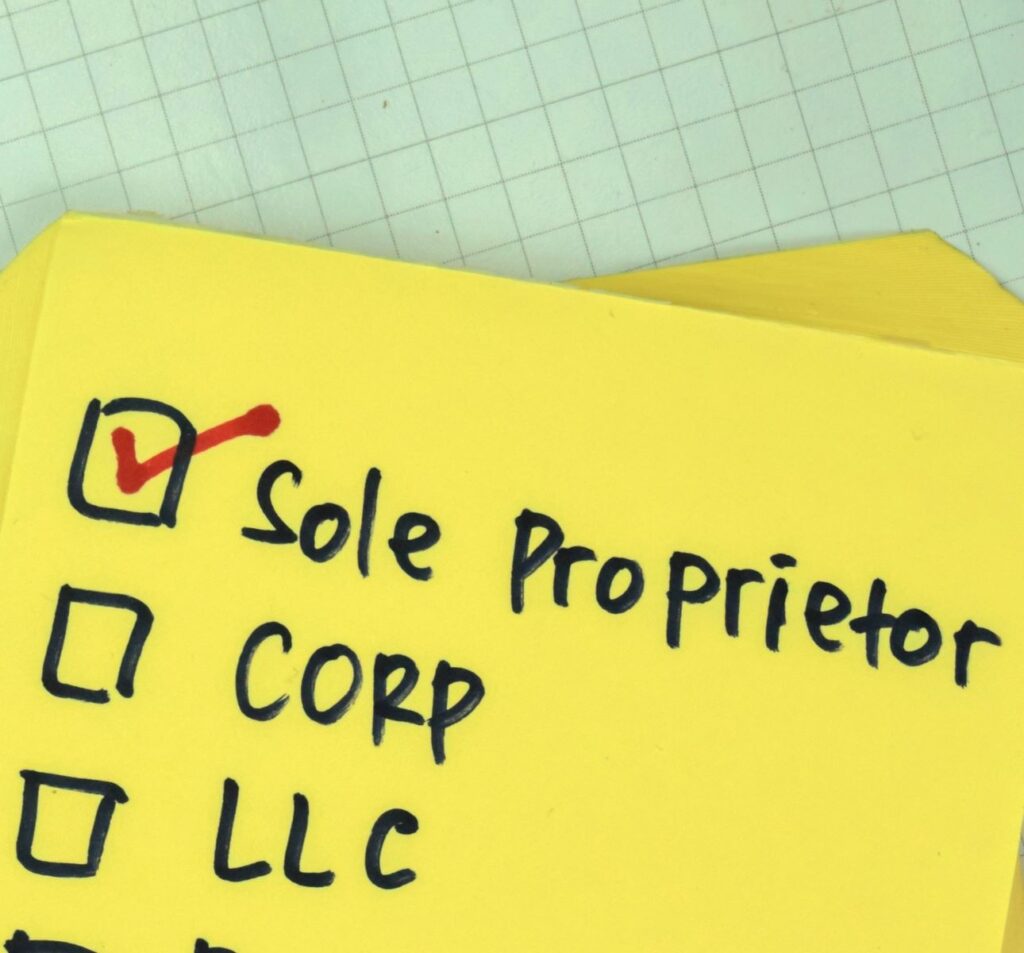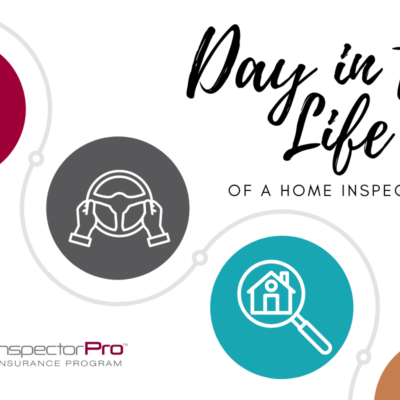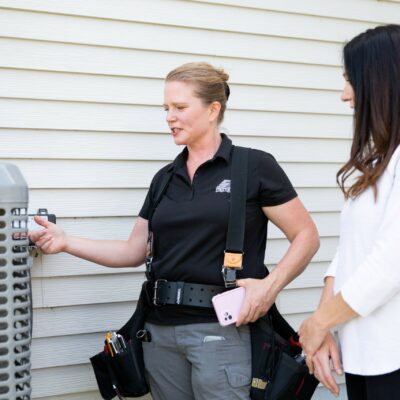6 Steps to Start a Home Inspection Business
Last Updated March 22, 2024

What does it take to start a home inspection business? Lots of learning, research, dedication, and a plan to set you up for success. This will prepare you for the mountain of decisions that come with getting a new home inspection business up and running. As a result, you will be able to create solid risk management practices that carry you throughout the course of your career.
For the mentors, teachers, and new inspectors looking for resources, here’s how to start your own home inspection business.
1: Find out if inspecting homes is right for you.

When people ask how to run a successful home inspection business, you’ll hear it takes a good deal of spirit. There will be challenges. The demand for inspections isn’t always consistent. It’s competitive and often physically demanding. Real estate agents, buyers, and sellers can be challenging to work with. Your success is heavily tied to the health of your local real estate market.
This isn’t to scare away any future inspectors. On the contrary, these challenges come with plenty of benefits, too.
That being said, it takes a certain kind of inner fuel to start and maintain any new career—home inspection businesses among them. So before you set off to start a home inspection business, you’ll want to know if it’s a good career choice for you.
- How interested are you in the inner workings of a home?
- Are you a good communicator?
- Are you teachable?
- How about thorough?
- Are you observant, good with people, and open to making connections?
These characteristics all go hand in hand with a thriving home inspection business.
“Are you comfortable with people? Do you feel like you can connect with them, give them information that they can use? You’re really providing a very important part of [a client’s decision],” said Ray Kline of All Phase Inspections in Colorado. (Kline offers great insight into the relationship focus of running a home inspection business in his Inspector Spotlight here.)
Still wondering if being a home inspector is the right fit for you? Read parts one and two of our series about the pros and cons of inspecting in the February and March issues of the Reporter. Or read our overview of a typical day in the life of a home inspector. We also suggest talking with current inspectors in Facebook groups, on forums, and at in-person events.
Step 2: Make a home inspection business plan.
The next step to start a business as a home inspector is to create a plan.
A home inspector’s business plan should go beyond earning your license and naming your business. You need a clear vision of your goals, a plan to differentiate yourself from the competition. A plan makes your job easier, keeps you motivated, and prevents inspector burnout long term. But many inspectors skip this step, says Vince Cardone of Residential Inspection LLC in Florida.
“If you don’t have a goal, you have no starting point. I tell people all the time, ‘Well, where do you want to go? What do you want to do? How many inspections do you want do this year?’” Cardone explained in his spotlight with InspectorPro. “If you don’t have a plan, you’re never going to get there.”
When creating a business plan for a home inspection business, pay close attention to costs. Estimate your short and long-term expenses and how you’ll cover them. Remember, costs that seem more frivolous at first may save you time and money in the long run. Hiring a professional marketer, for example, can save time on home inspectors’ business cards and logo ideas.
Here are some home inspection startup costs to keep in mind:
- Testing and licensing.
- Software.
- Membership through an organization like the American Society of Home Inspectors.
- Marketing initiatives.
- Insurance.
- Equipment and technology.
Furthermore, set goals that are SMART—specific, measurable, achievable, relevant, and time-bound. Plan how you’ll stand out from the competition. To do so, you’ll need to study your demographics.
“Look at demographic trends, particularly job creation and population inflow. [Look at the] house market’s health. If houses are not spending a lot of time on the market, there’s high demand,” said Bruce Barker, president of Dream Home Consultants, LLC. in Florida and ASHI past president in 2021.
3: Get certified.
After forming a strong plan, we suggest getting certified. Not every state requires home inspectors to be certified. However, many inspectors we’ve spoken to agree it’s a crucial step to starting a home inspection business. Getting credentials boosts your credibility, enhances your home inspection business’ marketing, and manages your risk. Joining a national organization like ASHI makes earning certifications and completing your continuing education a breeze.
ASHI’s mentorship program is a phenomenal resource for connecting new inspectors with experienced and knowledgeable mentors. Learn more about the perks of mentorship and 2023 ASHI President Lisa Alajajian-Giroux’s passion for it in her spotlight.
4: Register your home inspection business.
Hopefully you’ve brainstormed some names for your home inspection business. Now it’s time to register.
To register your new business, start by finalizing its name. Your name is how clients will find and identify you. Your home inspection business name ideas should reflect:
- Who you are.
- What you do.
- What makes you different.

Michael Ashburn of Ashburn Home Inspections LLC in Pennsylvania also recommends picking a name that can grow with you, like if you move to a new city, diversify your services, or retire.
“I wish I would have set up a generalized name instead of my personal name,” Ashburn said. “If I ever went to sell [the company], the [generalized] name could transfer.”
You also need to choose an entity type. Many new inspectors wonder: What type of business is a home inspection company? Limited liability companies (LLC), sole proprietorships, and S or C-Corporations are all popular business entity types in your industry. We compare them in our previously linked article.
When going through the steps of starting a home inspection business, you must also consider the different types of registrations. You might register by:
- Entity name, which protects your business at a state level.
- Trademark, which offers federal protection.
- DBA (Doing Business As).
Your state and entity type may require you to follow certain registration protocols. Be sure to consult a certified public accountant and local legal counsel while registering your home inspection business.
5: Have a strong pre-inspection agreement.
One of the best things you can do to start a home inspection business on the right track is prioritize your pre-inspection agreement.
Your pre-inspection agreement is your first line of defense against home inspection claims. Some of the best home inspection industry advice for your risk management is to have a well-crafted agreement and get it signed before you start every inspection. Having clients sign ahead of time proves they agreed to the terms of your service. Furthermore, it’s essential for setting expectations with clients, getting insurance coverage, and securing optimal defense against claims. You simply cannot start a home inspection business without a solid agreement in place.
To help you proactively prevent messy claims and conflicts like these, all InspectorPro insureds have free access to our exclusive, house-crafted agreements. Designed for your unique state, each contract includes the top provisions proven to hold up in a home inspector’s favor in court. Plus, using it will get you a $1,000 discount off your deductible.
Don’t start building your home inspection business without this essential risk management tool. Learn how to get your InspectorPro agreement here. Additionally, read these 12 steps to get a signed agreement before you inspect, every time.
6: Get insurance for your home inspection business.

Here’s something you or your new home inspection business don’t need—a stressful, expensive claim. That’s why we encourage every inspector to get insurance.
Many inspectors live in states that require insurance to obtain a license. (You can read about your state’s insurance requirements by selecting your state from our map.) But there are plenty of reasons to get insurance even if your state doesn’t require it. To name just a few examples:
- Insurance saves you money on expensive dispute resolutions. This is especially true if your provider offers discounts for reporting claims early or pre-claims assistance to prevent claims altogether.
- More than half of inspectors face at least one claim in their careers. It can happen to anyone, even the most experienced inspectors with the best reports.
- The experience of dedicated claims-handling professionals makes a huge difference in resolving disputes quickly and inexpensively.
There are four kinds of policies to consider. We compare the two most common policies, errors and omissions (E&O) and general liability (GL), in our guide here. If you plan to invest in expensive equipment, like a laptop, camera, or drone, home inspection equipment coverage is essential for protecting these assets (and your wallet) if they’re broken, lost, or stolen. Furthermore, if hiring employees is part of your home inspection business plan, set aside a budget for a workers’ comp policy in case of employee injuries.
Lastly, read up on the ins and outs of choosing insurance limits so you know exactly how much coverage you want (and why).
With InspectorPro and ASHI, starting a home inspection business is easy.
It’s never too early to protect yourself and your business. And, with InspectorPro with the ASHI Advantage, securing insurance for a new home inspection business has never been more seamless.
New inspectors can get $250 off their first year of coverage with InspectorPro for being an ASHI member. Additionally, most of our policies qualify for free pre-claims assistance and research-backed pre-inspection agreements.
We’re happy to be your resource from launch to retirement. Going through the steps to start a home inspection business and not currently insured with us? Get a no-obligation quote by filling out our online application.
Want a shorter version of this article to share with new inspectors or for yourself? Download our PDF here to take it with you.





